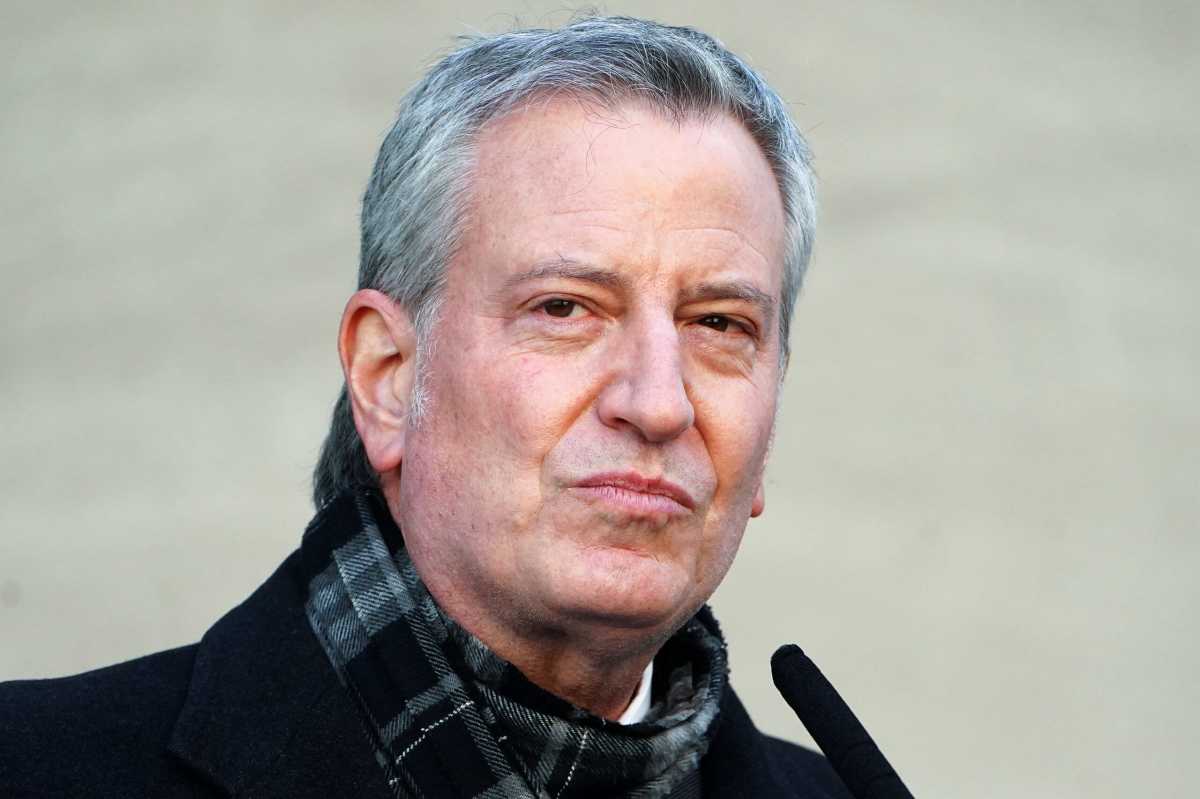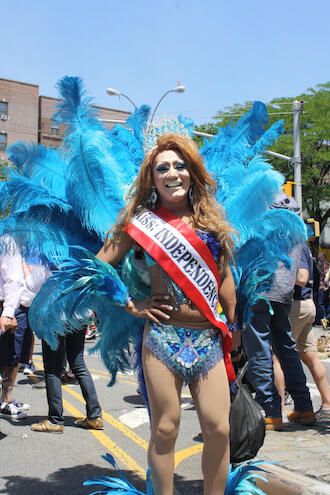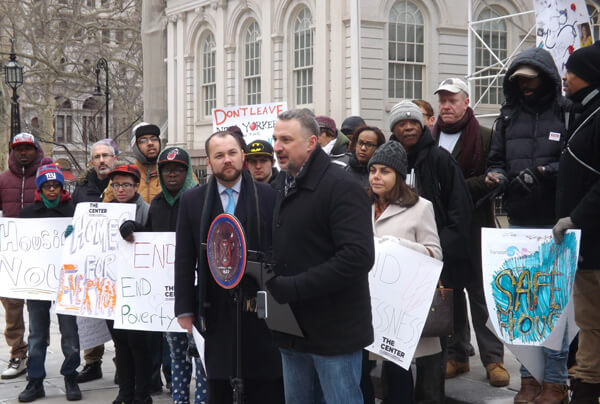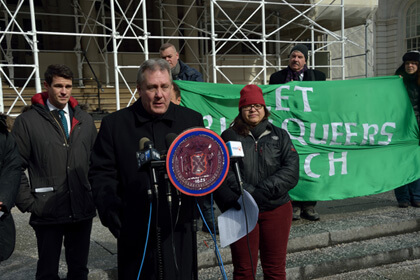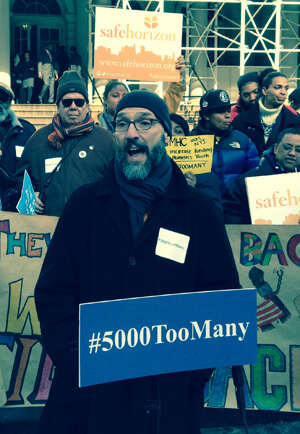Mayor Bill de Blasio on March 16 said he no longer wants the NYPD to arrest sex workers for engaging in sex work and he called on the State Legislature to take action to decriminalize sex work, but he is remaining vague about his specific position on the issue at large.
“If you’re talking about sex work alone, of course I don’t want to see arrests for that anymore,” the mayor said during a press conference.
De Blasio kicked off his presser on March 16 by expressing his desire to “end the criminalization of sex workers” and combat sex trafficking, saying “sex workers are often those who are subjugated, who are victims of trafficking, who are people who think they have no other choice.” The mayor said his administration is creating a task force to address the “health and safety needs” of sex workers and said the NYPD would be developing “new approaches” to target sex traffickers rather than sex workers.
But de Blasio did not specify whether he believes decriminalization should extend to all individuals involved in consensual sex work — including buyers, sellers, and those who facilitate sex work. And while he also said the city would be creating “state legislative framework for decriminalizing sex work,” he did not say whether he backs the Stop Violence in the Sex Trades Act, which was first proposed by state lawmakers 2019 and would broadly decriminalize sex work.
A spokesperson for de Blasio did not respond to multiple emails from Gay City News asking whether he backs the comprehensive decriminalization bill or about his stance on sex work decriminalization in general. The city did release a “NYC Police Reform and Reinvention Collaborative Draft Plan” on March 12 stating that the “NYPD will collaborate with other agencies to maximize their ability to arrest and prosecute traffickers and violent offenders without collateral trauma to people engaged in consensual sex work or victims of exploitation.”
Following de Blasio’s press conference on March 16, the administration put out a press release with quotes from advocates who welcomed the new plan. De Blasio also said in that release that he wants to “end criminal penalties for sex workers” but said nothing about ending penalties for others involved in the consensual sex trade.
“Many people have to understand that there is an issue and criminalizing sex workers is not the way to go,” Ethel Titus of Caribbean American Pride said in a written statement. “These steps we are taking are crucial towards ensuring that those who need it are protected.”
Destination Tomorrow’s founder executive director, Sean Coleman, also reacted to the new plan, saying it “will do what is long overdue, create space to support and uplift former and current sex workers and survivors of human trafficking.”
“While this initiative is one step forward, it must include the voice of those directly impacted,” Coleman said. “At Destination Tomorrow, our Sex Worker Immediate Temporary Comprehensive Housing (SWITCH) looks to develop strategies to address the need for safe, affordable housing that is community centered. We look forward to working with the Mayor to build on this effort,” said Sean Coleman, Founder and Executive Director of Destination Tomorrow.”
De Blasio discussed sex work decriminalization in vague terms at a press conference last September in response to a question from Rose Goldensohn of The City about the death of Layleen Xtravaganza Cubilette-Polano, a trans woman who died after she was neglected by guards at Rikers. De Blasio said at the time that his “broad answer” to the question of whether sex workers should be arrested “is no.” He seemed to indicate that he was against comprehensive decriminalization, saying that people “who are organizing and profiting from that sex work are the people who should be arrested.”
Advocates have repeatedly argued that sex trafficking could be better addressed if sex work is decriminalized across the board, which they believe would make it easier for workers to speak up without fear.
The Stop Violence in the Sex Trades Act has collected dust since it was first introduced in 2019, but advocates have made progress in other areas since then. Most recently, the State Legislature repealed a loitering law known as a ban on Walking While Trans because of the way in which police officers used the measure to harass and discriminate against sex workers.
Meanwhile, some state lawmakers, such as Manhattan State Senator Liz Krueger, have been advocating for legislation that would only focus on removing penalties for sex workers — an approach that has been soundly rejected by sex work decriminalization advocates for years. Government officials from Sweden and France lobbied Krueger and former Brooklyn Assemblymember Tremaine Wright in 2019 to discuss “how to advance the Equality model at NY state level.”
Earlier this year, reports indicated that Krueger was introducing legislation along these lines dubbed The Sex Trade Survivors Justice and Equality Act, but it does not appear to have been formally proposed in the Legislature.
Editor’s Note: This story was updated to include quotes from advocates who reacted to the administration’s new plan following the mayor’s press conference. To sign up for the Gay City News email newsletter, visit gaycitynews.com/newsletter.

